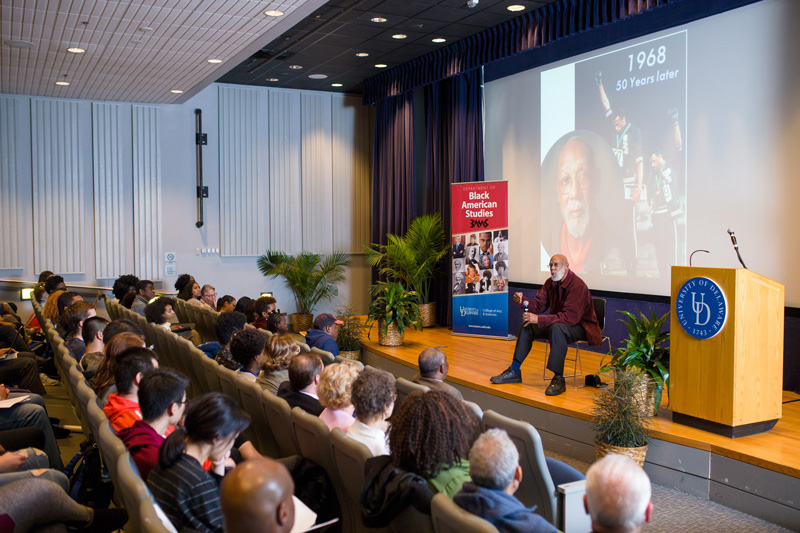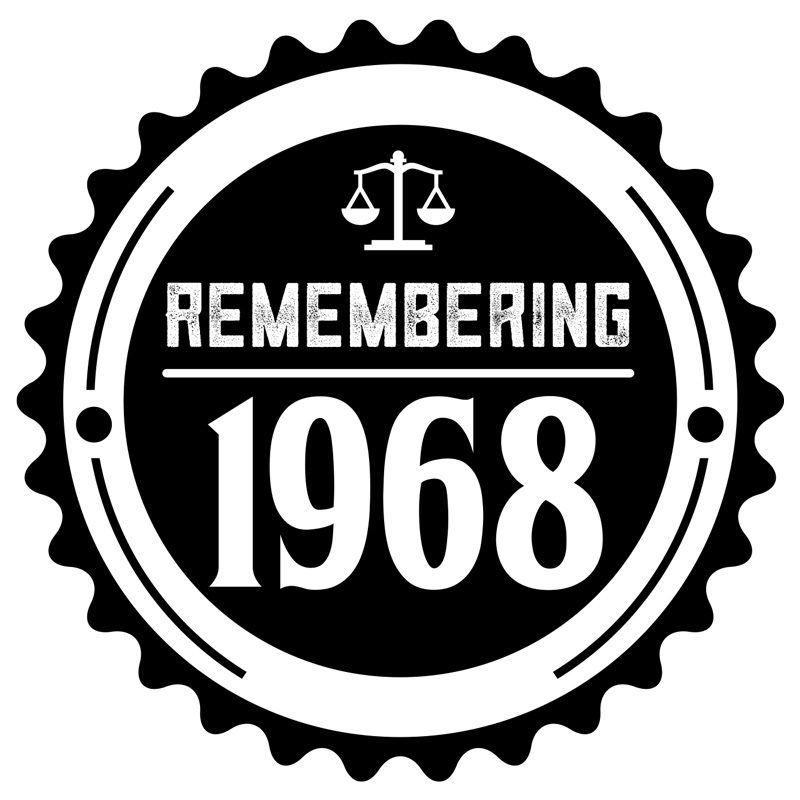


A fight to be won
Photo by Kevin Quinlan February 22, 2018
50 years after his iconic protest, Olympian and civil rights activist John Carlos shares his lessons learned
Before he won the bronze medal in the 200-meter dash at the 1968 Summer Olympics, before he stood upon the victory podium and raised his left fist, before images of his silent protest were seen in every newspaper across the world, John Carlos had a vision. At the University of Delaware’s Trabant University Center auditorium on Tuesday night, he spoke to a packed audience and shared it.

“I’m standing on a box, raising my left hand,” Carlos told his father shortly after his dream. “Everybody was happy, but then they started yelling, calling me names, throwing things.”
That was in 1953, and he was only eight years old. Fifteen years later, at the Olympics in Mexico City, Carlos would raise his fist alongside Tommie Smith and watch his young vision unfold.
“God gave me that vision,” he said. “Why he gave it to me, I can’t wait to ask him.”
In a speech marked with humor and candor, Carlos reflected on his early years, from vowing to compete in the Olympics after hearing about the first woman to swim the English Channel to lamenting the lack of economic opportunity for black men.
“I saw black doormen and black elevator operators,” Carlos said. “But I didn’t see them in the bank, or owning hardware stores, or working in hospitals.”
Though progress has been made, the fight against racial injustice continues, he said.
“It’s all a game,” Carlos said. “Basketball, football, soccer, hockey. What do you get in the game for? To lose? Nah. We’re all in it to win. The game of life is no different. You didn’t apply to be a citizen of humanity, but the concept is the same.
“We’re all going into the ground,” Carlos continued. “But you get flashes on the way out. Did I have good moral character? Did I have love and compassion for my fellow man? Ya’ll gotta make your own choice. I made mine.”
His talk was part of the University’s Black History Month celebrations, as well as a larger initiative to commemorate a pivotal year in the civil rights movement.
As Wunyabari Maloba, chairperson of the Department of Africana Studies, said in his welcoming remarks, “The struggle that [Carlos] started has not been won. The issues he raised have not been solved. We’re still fighting the good fight.”
Contact Us
Have a UDaily story idea?
Contact us at ocm@udel.edu
Members of the press
Contact us at 302-831-NEWS or visit the Media Relations website

